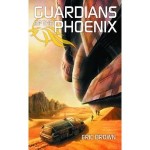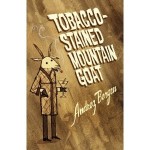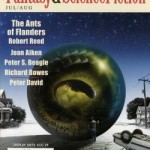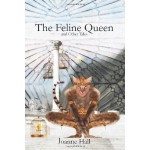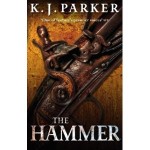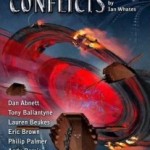Black Static 23 Reviewed
Black Static for June / July 2011 contains the usual reviews and commentary, while the stories are mostly by returning regulars.
V. H. Leslie appears for the second time in three issues, and already looks to be the magazine’s most prominent newcomer of the year. In ‘Time Keeping’ Howard believes that he keeps time running smoothly. It’s a demanding time-consuming job, so when he meets Helen, Howard couldn’t shake the feeling of danger. Leslie has an elegant, assured style, and while the story may need more than one reading, the (initially) opaque timeline does eventually come clear, and the reader learns what the danger is. Recommended.
‘Hail’ by Daniel Kaysen is an extremely busy story –there is much more plot than is usual with Black Static stories, which tend to concentrate on atmosphere- but it’s no less effective for all that. The narrator picks up a girl while sheltering under an awning from the rain, and she asks him directly if he wants to go back to her flat. When she has want she wants, she throws him out, from which point the more the nameless protagonist tries to escape his fate, the more tightly he is caught in its web of inevitability. Highly Recommended.
From the moment the protagonist (and therefore the reader) gradually awakens to the sound of the underground, it’s clear that Carole Johnstone’s ‘Electric Dreams’ is something special. Eli is a young man accepting food and shelter, and occasionally –perhaps enough to just get him by- money in return for hearing what people need; whether he can work miracles, is a god, or previous events are just coincidence, Eli’s supplicants believe that he can
put the office rival out of action (“You won’t kill him, will you?”)
cure a woman’s mother of end-stage breast cancer
save the rats on the Underground.
Now Eli has to decide whether it’s time to change again. To start again. Two years was a long time –the longest yet- and success bred notoriety. It’s a top-notch story, one of the best in recent months.
World Horror Convention
Robert Davies won the 2011 World Horror Convention / Black Static short story contest, and from its opening line of When Jackson Cade woke and felt his right lung missing, he knew the Harvesters had come again, ‘The Harvesting of Jackson Cade’ makes it clear why. There are a couple of irritating non sequiteurs early on, but the story of physical disintegration at the hands (or should that be at the mandibles?) of the nightmarish Harvesters is unrelenting. Recommended.
Joel Lane ends the fiction for this issue with ‘For Their Own Ends,’ in which Barry awakes from a heart attack in a private hospital to find that patient care has taken a back seat to ‘market awareness.’ Lane’s prose is as precise as ever, allowing him to generate that frisson of fear with the most apparently innocent of phrases: a young man took Barry’s left hand and felt his pulse, then jabbed a needle into the vein of his wrist. Without speaking, he attached the syringe to a drip stand holding a bag of crimson fluid. Highly Recommended.
Comment
As always the fiction is enhanced by the quality of the non-fiction embracing it. Stephen Volk’s ‘Coffinmaker’s Blues’ looks at [moving] the debate about so-called “evil” away from the realm of religion and moral philosophy into the realm of science. Christopher Fowler is interested in how Spanish cinema seems to be adopting the mantle of the main maker of horror movies with the power to move audiences. Finally, Mike O’Driscoll studies the work of political philosopher John Grey, whose latest book is a brilliant dissection of our continuing desire to console ourselves with delusions, either in the form of a secular afterlife, or through the deification of humanity by means of “the abolition of death.”
Reviews
Peter Tenant interviews new horror star Tom Fletcher and reviews his novels, The Leaping and The Thing On The Shore, both Cumbrian-set contemporary horror novels. Other Case Notes feature chapbooks from Joe R. Lansdale, Ramsey Campbell and Gary McMahon, plus three anthologies; Dark Minds Press offer the eponymous Dark Minds, The End of the Line is published by Solaris, while Tor provide an American perspective in Nick Mamatas and Ellen Datlow’s Haunted Legends.
Finally, Tony Lee reviews DVDs and Blu-Rays, such as Natalie Portman’s appearance in Black Swan, and the Stanley Kubrick boxed set Visionary Filmmaker Collection, as well as a reissue of the classic Witchfinder General, starring Vincent Price. It’s a good way to round out another excellent issue.

